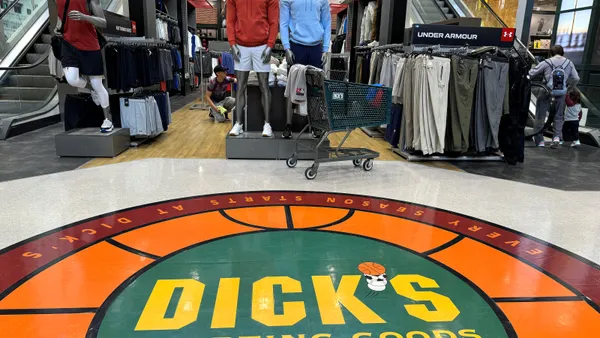Dive Brief:
- Many airports faced delays on Monday after an outage impacted the computer systems of the U.S. Customs and Border Protection (CBP), according to a statement from the agency.
- The service disruption, which lasted approximately two hours, is not believed to be malicious, an agency spokesperson told Supply Chain Dive. CBP said that despite the outage, the agency continued to have access to national security-related databases.
- CBP did not provide a full list of airports affected; however, airports in New York City, Dallas and Denver tweeted that they were affected by the outage.
Dive Insight:
The CBP system outage no doubt wreaked havoc for many passengers traveling on a busy holiday. For supply chains, the outage was apparently short enough that air freight and cargo were largely unaffected by the delays.
The outage lasted from about 7:30pm to 9:30pm on New Year’s Day. “CBP took immediate action to address the technology disruption,” an agency spokesperson told Supply Chain Dive. “All airports are currently back on line.”
Miami International Airport was affected by the computer outage, creating long lines at customs. However, no cargo was significantly delayed, Greg Chin, Communications Director for the Miami-Dade Aviation Department, told Supply Chain Dive.
Miami’s airport is one of the busiest in the world for cargo traffic, and it’s the fourth busiest airport for cargo in the U.S., according to data from the Airports Council International. Nearly two million metric tons of cargo were transported through the airport in 2013.
UPS Airlines serves more than 700 airports worldwide, according to the company's Twitter. Despite its broad reach, the CBP outage did not impact UPS processing, Jim Mayer, Public Relations Manager at UPS Airlines, told Supply Chain Dive.
Aside from delays, security — both physical and cyber — is always a concern with an outage such as this one. In this case, CBP doesn't believe this particular outage was "malicious" in nature. Cyber attacks can, however, affect grids and systems with costly repercussions. A huge cyber breach on Maersk last June slowed many of the group's operations for months and cost the line nearly $300 million.
Since 2007, the Department of Homeland Security has been required to screen all cargo transported on passenger airlines. Last summer, the Transportation Security Administration reviewed its cargo security measures, after discovering a partially assembled bomb on a commercial cargo plane. In Monday's outage, CBP said it was able to maintain access to its national security databases. But sometimes when systems go down, screening technology could be affected too.














